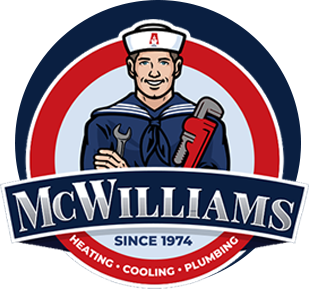
The evaporator coil carries the refrigerant for the cooling system to remove the heat from the air. When the coil has a leak, the refrigerant can leak into the air indoors, which isn’t healthy to breathe. A low refrigerant level can also cause the heat pump or A/C to freeze over, stopping the cooling process. A frozen coil also has the potential to cause irreparable harm to the compressor.
You can avoid A/C evaporator coil leaks from forming in the first place by:
- Limiting the use of products that emit VOCs. Found in paint, new flooring, furniture, cleaning supplies, and vehicle exhaust, VOCs are known indoor air pollutants. When purchasing products that use chemicals, look for those whose labels state they’re low in VOCs.
- Reducing humidity levels. In the cooling mode, a heat pump removes humidity as part of its function, as do air conditioners, but if the amount is insufficient to maintain a healthy level between 30 and 50 percent, consider a whole-house dehumidifier. Our climate is naturally humid and besides reducing formic acid production, your home will be easier to cool and more comfortable.
- Improving indoor ventilation. Energy recovery ventilators (ERVs) pull in fresh, dehumidified air while exhausting stale indoor air without losing the thermal properties of the outdoing air. Fresh air dilutes the harmful effects of VOCs for both you and your A/C system.
If you suspect A/C evaporator coil leaks or for help avoiding them altogether, contact McWilliams & Son Heating & Air. We’ve provided trusted HVAC services for Nacogdoches and Lufkin homeowners since 1974.

